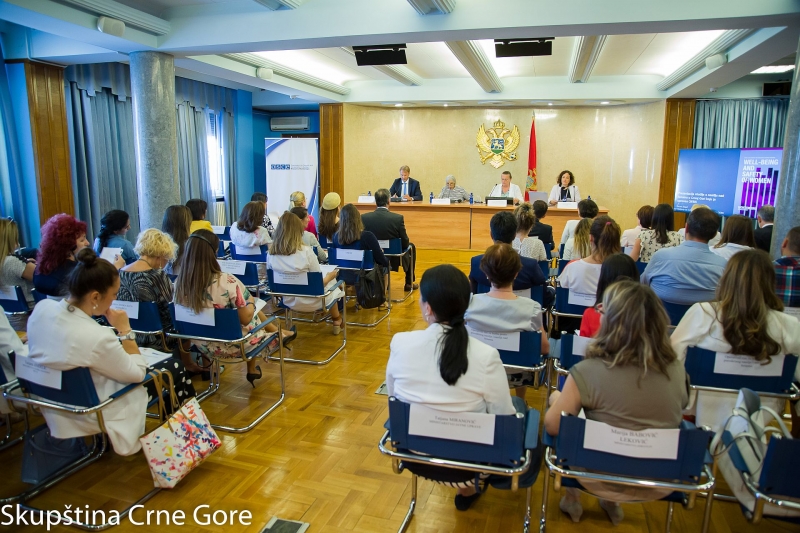At the 35th Meeting of the Gender Equality Committee held today and organised in cooperation with the OSCE Mission to Montenegro, and attended by representatives of ministries, NGOs and international organisations, diplomatic corps, the results of the Report for Montenegro were presented. The report was drafted within the “Survey on the Well-being and Safety of Women” project.
In the introductory part, speakers were Chairperson of the Committee Ms Nada Drobnjak, Head of the OSCE Mission to Montenegro Ms Maryse Daviet and Head of the EU Delegation to Montenegro Mr Aivo Orav. Ms Serani Siegel, Project Manager, Gender Section, Office of OSCE Secretary General, presented the OSCE survey on violence against women, the well-being and security of women.
The research aimed to collect data on violence against women in conflict and post-conflict situations, to serve as a basis for making of policies, strategies, programs and activities based on specific data, as well as to lead to the improvement of services for women and girls who survived the violence. In 2018, the survey was conducted in Montenegro, Serbia, Bosnia and Herzegovina, Albania, North Macedonia, Kosovo, Ukraine, and Moldova.
The OSCE survey included a quantitative and qualitative component and was undertaken with the goal of providing comparable data on different forms of violence women experience in their childhood and throughout the course of their lives. The survey included violence that women have experienced in a conflict and non-conflict settings, as well as the impact of violence on women and girls, including its lasting consequences. Questions about norms and attitudes related to violence against women were also included in the survey in order to better understand the causes of violence.
Key findings show that violence against women in Montenegro represents a cause for concern.
Six out of ten women surveyed (62%) believe that violence against women is common, while about a quarter (23%) believes that violence is very common. A quarter of them (26%) personally know a person from their family and friends who have been exposed to violence against women, and a similar percentage knows a woman from their neighbourhood who was the victim of violence. Many of the surveyed women have heard about the services for helping vulnerable women, however, only a small number of women contacted these services.
This project is funded by the European Union and supported by the United Nations Population Fund, UN Women and UNICEF, as well as by the governments of Austria, Finland, Germany, Italy, Norway, Sweden, and the USA.












